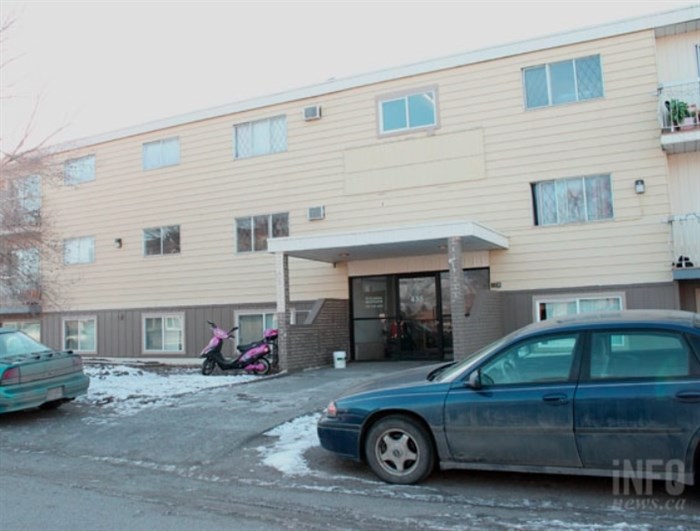BC Housing spending spree needs more transparency: Professor

B.C. Housing often spends three or four times the assessed value when it buys old motels and apartment buildings, like it did recently in Kamloops.
Earlier this month it spent three times the assessed value for the fire-damaged Clearview Manor at 435 Cherry Ave. in Kamloops, dishing out $12.8 million.
READ MORE: B.C. Housing buys fire-damaged Kamloops apartment building for $13M
A week later it spent $54.6 million for a 12-storey Vancouver apartment building that was assessed at $15.4 million. That’s 3.5 times the assessed value.
When those prices are broken down to include renovation and other costs, they may make more sense but it’s impossible to really tell if taxpayers are getting a good deal or getting ripped off.
“Whenever BC Housing purchases a building, it gets an independent appraisal done,” B.C.’s Housing Minister Ravi Kahlon told iNFOnews.ca. “Often the appraised value is not the assessed value or anywhere close to the assessed value.”
BC Assessment evaluates commercial properties based on things like condition of the buildings, potential rate of return and rental income.
An appraiser takes into account things like development potential for the land.
Clearview Manor was assessed at $4.8 million but appraised at $10.4 million. That didn’t include $400,000 in renovations already made to the fire damaged building, the $550,000 B.C. Housing will spend to finish those renovations and things like closing costs, Kahlon said.
But, just because a building is appraised at $10 million, does that mean the province needs to pay that appraised amount, especially if no one else is interested in buying the property?
“If no one wants the property, the appraised value perhaps will not be as high,” Dr. Joseph Daniels coordinator for UBC’s Housing Assessment Resource Tools project, told iNFOnews.ca. “Without knowing if there are other potential buyers, it’s hard to tell.”
The only way to find out if there are competing bids is to ask the realtors and they generally won’t talk, he said.
“That is a key challenge,” Daniels said. “Even in our work in the Housing Assessment project, understanding if an offer has been placed on a property is very difficult. We would argue there needs to be, on specific kinds of properties, a first right of refusal. For example, if someone makes an offer, then a public entity or non-profit could match that offer. Then you have some visibility. But, in our current world, we don’t really have any visibility in advance of that offer.”
Or, there could be a requirement for owners of certain properties to let the government know they’re for sale.
READ MORE: Growing number of homeless seniors in Kamloops presents unexpected issues
“The (government’s) mission, overall, is the correct one and the direction is the right one,” Daniels said. “It’s more in the details of – how can we even assess if we don’t have access to the same information? That has some clear challenges both in terms of the actual doing of those acquisitions but, also, in the aftereffects like, OK, did we make the right choices?”
An audit was done of the government’s purchase of a number of hotels during COVID, he said. That found that the government did follow the buying process correctly but it did not look into whether the prices paid were justified.
“The provincial government is required to not spend more than what is considered fair market value, or within a range, I think it’s 10%,” Daniels said. “As a result, as long as they are in that range, they are authorized to make that purchase.”
That protects taxpayers from spending well over fair market value but, how far below that can the government go?
“Sometimes governments, as much as they get into trouble for overspending, they can get into trouble for under spending,” Daniels said. “They can’t be seen as government pressuring a private seller.”
Another great unknown in the buying spree B.C. Housing is engaged in, is whether certain parties are buying up properties in anticipation of flipping them to the government.
That doesn’t seem to be the case with Clearview Manor in Kamloops nor with the Vancouver purchase. BC Assessment doesn’t show any transactions in the past three years for either site, which is as far back as its listings go.
“When we created our original plan for our research, we were doing an acquisitions policy and tried to figure out who owned the building, when had it changed hands, what are the impacts of those changes,” Daniels said. “It’s really hard to get that data, in part because the Land Title Office and BC Assessment really don’t communicate effectively. They don’t have a shared portal either so it can sometimes be hard to match up information. Also, they’re not as concerned, often, about who is listed as the owner.”
Leading up to the 2010 Vancouver Winter Olympics there were concerns that numerous numbered companies were buying up properties in the Downtown Eastside, possibly to flip to the government. But it turned out that those numbered companies were actually government entities.
What is of concern in B.C. is the growing number of Real Estate Investment Trusts (REITs) buying up apartment buildings.
In Ontario, REITs went from zero ownership in the late 1990s to owning 170,000 to 180,000 units by 2017, Daniels said. Eviction rates went up as a result.
“Now, REITs (in B.C.) are sort of suggesting that they want to unload some of those properties onto, say, the state or a non-profit buyer, because they need to up their yields in a market that has turned against them in those particular properties,” Daniels said.
A simple way for the government to increase transparency would be to provide more information in its press releases on the purchases.
The news release on the Vancouver property breaks it down to $40.5 million for the building (appraised at $42 million), $4.1 million in fees and $10 million for renovations.
The Clearview Manor news release, on the other hand, just says it bought the property for $12.8 million.
A December 2022 news release simply says BC Housing spent $4.8 to buy and renovate the Lamplighter Motel in Kamloops.
Kahlon told iNFOnews.ca the purchase price was $3.7 million with the other $1.1 million needed for renovations.
“They could just reframe that decision to show that they’re making that evaluation and that it’s not just: ‘That’s what they asked so we paid it,’” Daniels said.
On the other hand, there is more to take into consideration than the relative market values of these properties, he noted.
“It makes a lot of sense for the government to be engaging in these purchases, let alone whether or not they’re are spending the appropriate amount,” Daniels said, citing the Vancouver example.
“They are paying something like three times the assessed value. That works out, with the renovations, to about $490,000 per unit. If you were going to do the same property but replace with new units, you’re potentially still getting savings of between 50% and 70%.
“And, residents can move in in the fall of 2023 so, really quickly. So, there are really good reasons for that and maybe even good reasons to pay a little bit higher than one would expect.”
The plan for the Vancouver site is to use it as supportive housing for people living in single-room occupancy buildings, opening those spaces to those living on the streets in the Downtown Eastside.
READ MORE: Back on Vancouver's Hastings Street with no tent, no mattress and nowhere to go
The Clearview Manor in Kamloops is aimed at low to moderate income families, seniors and people with disabilities. The plan is to have people start moving in by the end of this summer.
To contact a reporter for this story, email Rob Munro or call 250-808-0143 or email the editor. You can also submit photos, videos or news tips to the newsroom and be entered to win a monthly prize draw.
We welcome your comments and opinions on our stories but play nice. We won't censor or delete comments unless they contain off-topic statements or links, unnecessary vulgarity, false facts, spam or obviously fake profiles. If you have any concerns about what you see in comments, email the editor in the link above.



